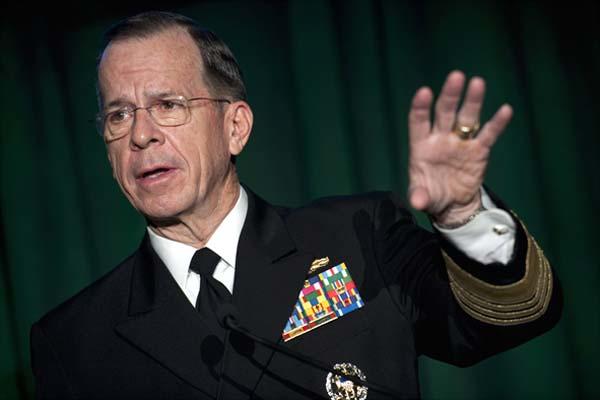Former Joint Chiefs Chairman Navy Adm. Mike Mullen joined the increasingly nasty feud Wednesday among retired top brass over the propriety of speaking out on the presidential campaign and other issues.
Working for or speaking on behalf of Republican presidential nominee Donald Trump or Democratic presidential nominee Hillary Clinton is "a violation of the ethos and professionalism of apolitical military service," even for a retired officer, Mullen said in a statement to The Washington Post.
"This is not about the right to speak out," he said. "It is about the disappointing lack of judgment in doing so for crass partisan purposes. This is made worse by using hyperbolic language all the while leveraging the respected title of 'general.'"
Mullen was referring to the high-decibel speeches recently made at the political conventions by retired Marine Gen. John Allen for Clinton and retired Army Lt. Gen. Michael Flynn for Trump.
Mullen was the second former Joint Chiefs chairman to take issue with Allen and Flynn for appearing at the conventions and to use The Washington Post as a forum for airing disputes among retired, high-ranking officers.
In a July 31 letter to the newspaper, retired chairman Army Gen. Martin Dempsey said Allen and Flynn "weren't introduced at the Democratic and Republican conventions, respectively, as 'John' and 'Mike.' They were introduced as generals. As generals, they have an obligation to uphold our apolitical traditions."
Dempsey also upbraided Clinton and Trump for letting Allen and Flynn take a star turn on national TV.
"Politicians should take the advice of senior military leaders but keep them off the stage. The American people should not wonder where their military leaders draw the line between military advice and political preference," Dempsey said.
Both Allen and Flynn have defended their appearances as their duty to speak out in the interests of national security. At the Democratic National Convention, Allen said, "I tell you without hesitation or reservation that Hillary Clinton will be exactly, exactly the kind of commander-in-chief America needs."
Flynn, the former head of the Defense Intelligence Agency who was briefly mentioned as a possible vice presidential choice for Trump before Republican Indiana Gov. Mike Pence was named, has been particularly outspoken in support of Trump and in his condemnations of Clinton as a serial "liar."
Flynn has also said that he was baffled at Allen's support of Clinton. "I honestly don't know how John Allen can look at himself in the mirror and say why he supports Hillary Clinton," Flynn said on Fox News' "The Kelly File."
The flare ups among former top-ranking officers have not been limited to politics. Earlier this week, retired Army Gen. Carter Ham, now president of the Association of the U.S. Army, went after retired Army Gen. David Petraeus on the subject of military readiness.
In an article for Defense One, Ham took issue with Petraeus' claim that the services were in fairly good shape in terms of readiness.
Despite shortfalls in many areas, "America's fighting forces remain ready for battle," Petraeus wrote in a Wall St. Journal op-ed with Michael O'Hanlon, a senior fellow at the Brookings Institution.
Ham wrote that readiness was in a precarious state while "The future of the United States Army is challenged by the combination of ongoing operations, emerging strategic threats, and a convoluted budget process that has weakened the nation's foundational force."
Despite the concerns of Mullen and Dempsey about the propriety of retired officers voicing political views, they can do so if they please. Defense Department rules prohibiting politics only apply to the active-duty force.
-- Richard Sisk can be reached at Richard.Sisk@Military.com.





























